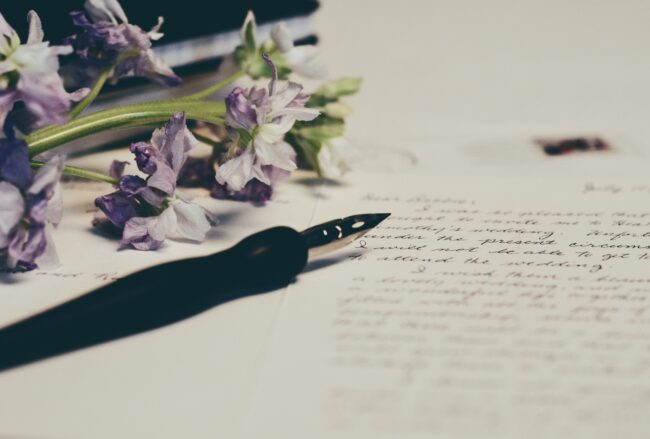Watching Netflix’s documentary, The Royal House of Windsor made me appreciate how eloquently the members of the royal family communicated through letters.
Whether they were updating each other on events, recounting their experiences, giving pieces of advice, or even admonishing each other, everything just seemed more romantic and dramatic knowing that the narrator is reading the lines from a written letter.
There’s just this added layer of intimacy and authenticity knowing these are the carefully chosen words by the sender.
I think it’s truly beautiful how they were able to process their emotions and thoughts as they write them on paper. How they had the luxury of time to put it all in ink and have this sent through traditional post.
Sadly, we hardly receive letters anymore. At least when it comes to those kinds. The last one I received was probably from a friend whom I had a fight with. I treasure that letter because she took the time to explain herself and emphasize the value of our friendship.
In learning a new language, we also had to write letters as our assignments. It felt weird, and I remember asking my teacher if people who spoke that particular language I was learning still wrote letters to each other. Now I understand that the exercise was really more about learning to communicate.
Furthermore, there are lots more benefits to writing letters. Research even says it makes you happier.
And so I resolve to write more letters, starting with letters for myself — both on regular days and on special occasions.
As an inspiration, I’m adding here a part of one of my favourites — a letter from Jose Diokno to his son Chel in 1974:
Why be honest when it pays to be dishonest? Why be fair to others when they are unfair to you? Why fight for others when they won’t fight for you—or even for themselves? Why think for yourself when it is so much easier to let others think for you? Why decide when it’s less troublesome to obey? Why be good when it seems so much more pleasant to be bad?
The answer I think is in what life means to you. If life means having a good time, money, fame, power, security, then you don’t need principles; all you need is techniques. In fact, it’s better not to have principles: they would only get in your way. On the other hand, if life means more than those things, if happiness counts more than a good time, developing your talents more than developing wealth, respect more than fame, right more than power, and peace of soul more than security; if death doesn’t end life but transforms it, then you must be true to yourself and to your God, and to love and truth, good and beauty, and justice and freedom that are His other names and that He has made part of our human nature.
Jose Diokno
Here’s what Chel had to say about this letter he received:
This was from 1974 and my dad’s words are still relevant. Sinasalamin pa rin nito ang lipunan natin ngayon.
— Chel Diokno (@ChelDiokno) October 21, 2021
Let me ask you the question my dad stirred up my head in this letter, “What does life mean to you?” https://t.co/9douG4HQiG





No Comment